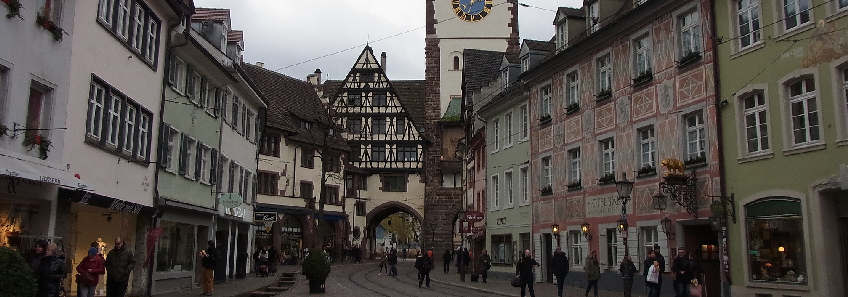http://yakitori.lit.osaka-cu.ac.jp/user/seiyoshi/
Students in the Western History course will use historical analysis methods to study the characteristics of the societies in the region encompassing Western Europe, Eastern Europe, the Mediterranean, and the United States. In so doing, students will work toward building their skills to conduct independent research. They will develop the ability to read and understand research documents and historical materials by reading literature in modern Western languages. They will also work toward gaining proficiency in reading historical materials in Greek and Latin in the course of their study of ancient and medieval history. A major feature of this course is its tradition of research in Byzantine history. However, students will also focus on research and education in other traditional fields of Western history.
The Western History course was newly established in AY 2001 with the reform of the Graduate School of Human Sciences. It is one of the newest courses at the Graduate School of Human Sciences, and thus, it was initially less popular and its reach was limited than other courses. However, in recent years, the number of graduate students has increased, and their approach is much lively. As of April 2020, the Western History Research Center has three academic advisors, approximately 10 graduate students and postdoctoral fellows on master’s and doctoral programs, and accepts researchers from other universities as research fellows at the Urban-Culture Research Center. Among the supervisors, Professor Masafumi Kitamura specializes in modern and contemporary German history, Professor Hisatsugu Kusabu specializes in the history of the Byzantine Empire, and Lecturer Shinya Mukai specializes in research on medieval French history. Graduate students, postdoctoral fellows, and research fellows are engaged in the study of a diverse range of topics, from those with similar specializations to the faculty staff, such as Byzantine imperial history and modern and contemporary German history, to contemporary American indigenous history, medieval British history, medieval Italian history, modern Italian history, and modern French history. The Western History research center may well be the most linguistically diverse place in the Graduate School of Literature—a place where different global cultures can interact.
Many students take up the doctoral program at this graduate school after completing the master’s program, and many study abroad at overseas universities after entering the doctoral program. To date, students have studied in Russia, Austria, Italy, and Germany.
The curriculum for the master’s program is substantially organized in the chronological order. The lectures are designed to cover various topics of ancient history, medieval history, and modern and contemporary history. In seminars, students acquire the ability to accurately read the texts by reading research literature in Western languages and historical documents in Greek and Latin. They also receive comprehensive support for writing their master’s thesis in the course of their research supervision. Faculty members and graduate students also conduct reading sessions in Latin and Greek, and there are voluntary seminars to support second-year master’s students in writing their theses. In the doctoral program, students write papers and present their research at conferences under the personal guidance of faculty members, working toward completing their doctoral theses. Doctoral students on the program have already presented their research at many academic conferences. In the nearly 20 years since its establishment, the Western History course has awarded seven doctorates, two of which were based on completion of the program and five of which were awarded based on the thesis alone.
In line with the research fields of our academic staff, the course has close ties with national and local societies within Japan related to Byzantine, medieval, and German history and supports students’ active participation in the Japan Association for Byzantine Studies, the Japan Society for Medieval European Studies, and the Society for Research in Contemporary German History. Our internal research and study groups include the Graduate School of Literature Project, the Byzantine Studies Liaison Group, the German Language Reading Group, and the Medieval Latin Historical Text Reprinting Group. Moving forward, the Western History course hopes to establish its own research center and journal in collaboration with researchers and groups within the university and at an international level.
News
Under construction.Staff
| Professor Masafumi Kitamura | Professor Masafumi Kitamura specializes in modern and contemporary Europe, focusing on the German social history. |
|---|---|
| Professor Hisatsugu Kusabu | Professor Hisatsugu Kusabu deals with history of the Byzantine Empire and Western medieval religious and cultural history. |
| Lecturer Shinya Mukai | Lecturer Shinya Mukai is associated with the Western medieval history and French history. |

